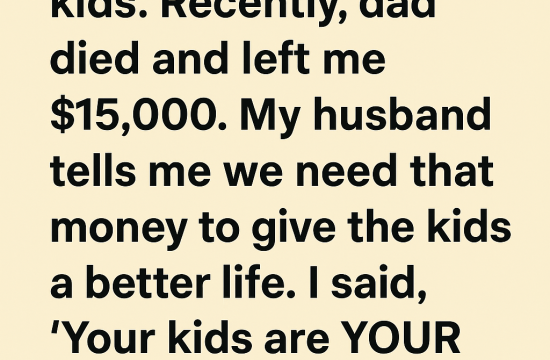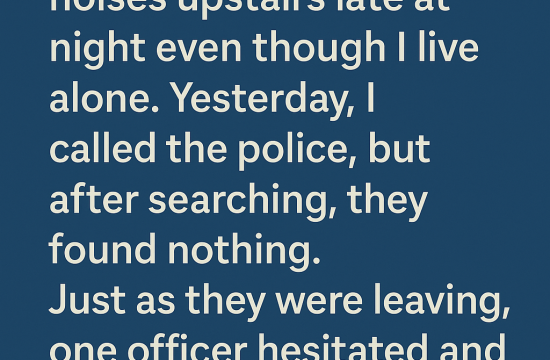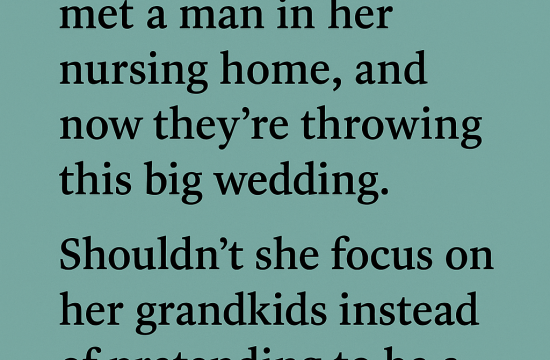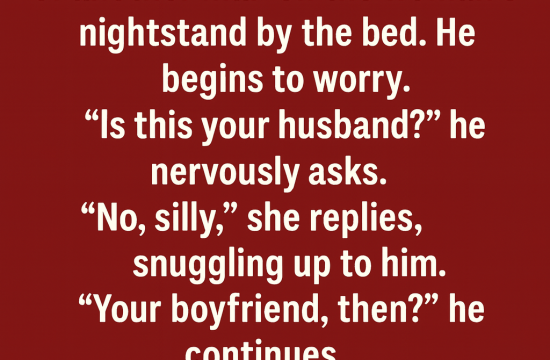My dad burst into the school office, out of breath, his voice rising with panic:
“What happened to my daughter? Is she okay?”
The principal cleared her throat, composed but stiff. “We called you because her skirt is too short.”
My dad turned to me, quickly scanning my outfit. His brow furrowed—not with anger, but confusion. Then he faced the principal.
“What about the boys wearing shorts above their knees? Or the cheerleaders during pep rallies? Or the crop tops I see every morning in your parking lot?”
Silence. Thick and awkward.
Even I froze. I had never seen my dad like that—calm, controlled, but sharp like a blade. The kind of calm you get right before a storm breaks.
Principal Henley shifted in her chair. “We’re simply enforcing the dress code policy.”
Dad folded his arms. “Is that policy applied evenly to every student? Because right now, it feels like you’re singling out my daughter.”
Heat crawled up my cheeks. I couldn’t tell what felt worse—being pulled out of class in front of everyone or being treated like a troublemaker because my knees were showing.
What made it sting even more? It was Spirit Week. “Retro Day.”
I was wearing my mom’s plaid 90s skirt, a tucked-in tee, and the kind of outfit that made me feel cute, nostalgic, confident.
But somehow, that made me “inappropriate.”
Dad turned to me gently. “You okay, Reina?”
I nodded. Barely.
He looked back at the principal.
“We’ll be going now.”
“Mr. Salcedo, we can’t just ignore—”
“No,” he said, voice steady. “But maybe it’s something you should rethink.”
We walked out, my heartbeat echoing down the hallway louder than our footsteps.
In the car, silence sat between us like fog. At the next red light, he finally spoke.
“You did nothing wrong, Reina. They embarrassed you. And they were wrong for it.”
I swallowed hard.
“I wore this same skirt last week,” I whispered. “No one said anything.”
“They only notice when they want to,” he said. “And that’s the problem.”
What he did next stunned me.
My dad—who still uses the same three emojis and thinks memes are “online cartoons”—wrote a post on his dusty old Facebook:
“Today, my daughter was pulled out of class because her skirt was ‘too short.’
She wasn’t disrupting. She wasn’t disrespectful.
She was learning—until the school decided her knees were more important than her education.
Dress codes shouldn’t shame girls into thinking their bodies are distractions.
Do better, schools. Our daughters deserve better.”
I rolled my eyes at first. I didn’t want attention. I didn’t want to be that girl.
But within two days, the post had over 12,000 shares.
People wrote from other states. Other districts. Other countries. Girls who had been shamed. Boys who had been punished inconsistently. Parents who never noticed the bias until now.
Then came the call.
A school board meeting had been scheduled.
We were invited to attend.
I didn’t want to go. I didn’t want to be the girl who caused chaos over a skirt.
But my dad looked at me and said,
“You already are that girl. The question is—do you want that to define you, or do you want to redefine it?”
So I went.
I stood at the podium in a room full of adults who didn’t know my name last week. And I told them what it felt like:
The shame of being pulled from class for my clothes.
The inconsistency.
The humiliation.
The message it sends to girls—that our bodies are problems, and that boys’ education matters more than our dignity.
I didn’t yell. I didn’t cry.
I just told the truth.
And it worked.
They didn’t throw out the dress code entirely, but they rewrote it. They made it clearer. Gender-neutral. Less subjective. Focused on actual disruptions—not outdated ideas of modesty.
Then the part I never expected:
They apologized.
To me.
And to every student who’d been treated unfairly.
Walking out of that meeting, I didn’t feel like the girl who got in trouble.
I felt like the girl who helped change something.
The weirdest part? I felt… proud.
Not because the post went viral.
Not because they changed the rules.
But because I finally realized I was never the problem.
I had just been treated like one.
Sometimes, you need someone—like my dad—to stand up for you first.
So you can learn how to stand up for yourself.
I still wear that skirt. Not out of rebellion.
Just because I like it.
And that should always be enough.
The lesson?
Don’t let anyone shrink you into silence.
If someone tries—speak up.
Even if your voice shakes.
Especially then.











